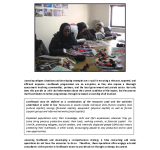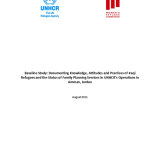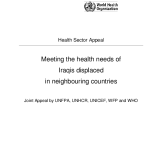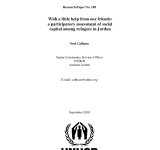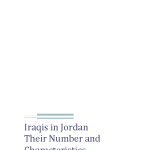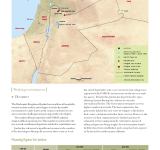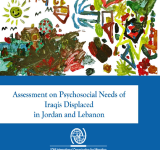Iraqis
This report addresses a family planning (FP) study undertaken by the United Nations High Commissioner (UNHCR);; the Women's Refugee Commission (WRC) and the Centers for Disease Control and Prevention (CDC) among Iraqi refugees in Amman;; Jordan in June-July;; 2011. It documents the knowledge;; beliefs;; perceptions and practices of refugees;; as well as the state of service provision to improve programming and subsequently increase uptake of good quality FP services among Iraqi women;; men and adolescents.
This joint interagency appeal to the international community seeks a total of US$ 84;;833;;647 million to provide support to national efforts aimed at improving access to health care for displaced Iraqis living in Syria;; Jordan and Egypt. The activities prioritized in the appeal are based on the Common Action Framework agreed upon during the Ministerial Consultation to Address the Urgent Needs of Displaced Iraqis;; convened by WHO in Damascus from 29-30 July 2007.
This report examines the notion of social capital. The assessment has challenged some of the assumptions about the refugees served in Jordan;; as well as the understanding of the host community. With the strong support of senior management and the informed and enthusiastic engagement of the multi-functional team;; UNHCR Jordan is now identifying new ways to support refugees in strengthening their social capital.
This report summarises the number of Iraqis residing in Jordan since 2007 and highlights their characteristics.
This report provides an overview of UNHCR operations profile in Jordan in 2014. It includes an summary of the situation of refugees and asylum seekers in Jordan;; their figures and UNHCR's reponse in terms of strategies and projects.
This report provides an overview of UNHCR operations profile in Jordan in 2013. It includes an summary of the situation of refugees and asylum seekers in Jordan;; their figures and UNHCR's reponse in terms of strategies and projects.
This report is an assessment on the psychosocial needs of Iraqis displaced in Jordan and Lebanon. The assessment included mapping;; structured interviews with stakeholders and 200 families;; and direct observations through an innovative methodology based on Hertz’s migration paradigms with a non medical focus. The results highlighted the necessity for psychosocial interventions;; since most families were rebounding in their experience of displacement;; and the challenges posed to service providers by the first massive urban displacement crisis.
